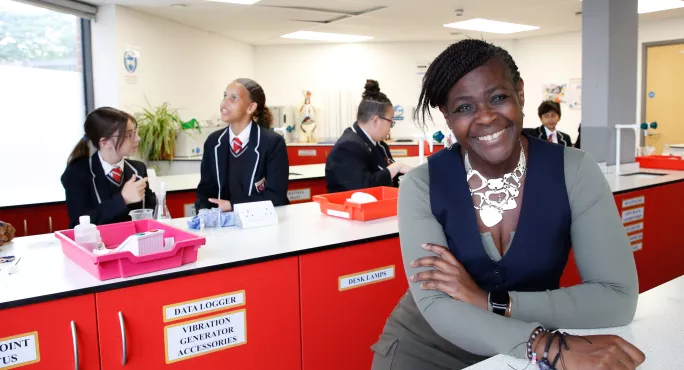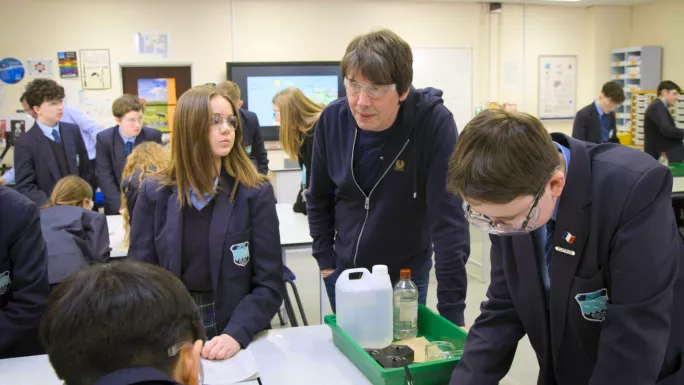Pupils spending less time on practical experiments in science classes is a “detriment to us all”, a leading space scientist has said.
Speaking to Tes, the former British Science Association president Dame Maggie Aderin-Pocock said the curriculum seems to be moving away from creative practical work that is most relevant to developing the skills needed for a career in science.
The BBC science presenter’s comments come after a Royal Society report published earlier this year found there had been a sharp drop in access to practical work for GCSE science students since 2016.
They also come as the government’s curriculum review, led by Professor Becky Francis, prepares to launch its call for evidence this month.
Curriculum ‘isn’t quite delivering’
Dame Maggie, who presents the BBC’s The Sky at Night, told Tes that pupils were still “learning by rote and ticking boxes” and the current curriculum “isn’t quite delivering” the skills needed for the “UK economy”.
She added that she would like to see the school science curriculum become “even more relevant”, and that practical experiments are a big part of developing the creative skills needed for a career in science.
Dame Maggie said “rote learning of the past” is an “outdated mode of teaching”, and explained that practical work had been important in helping her develop her science learning at school as her dyslexia had meant “just reading things” was more difficult.
Dame Maggie and Professor Brian Cox spoke to Tes as they launched a range of new videos and resources, which they have produced with the Royal Society to support teachers in bringing more practical experiments into the classroom - particularly if they are non-specialist.
The resources are intended to help teachers run cost-effective experiments related to the current world.
Sarah Hannafin, head of policy at the NAHT school leaders’ union, has previously said the drop in science practical work may be down to shortages in specialist teachers and the struggle to fit them into a packed curriculum.
The Royal Society of Chemistry has also said many schools cannot afford to replace the chemicals and equipment needed for practical work.
Professor Cox told Tes: “If that’s correct, it does concern me. It’s such an essential skill. These experiments at school are where you learn that you can be absolutely wrong and your opinion does not matter when faced with nature.”
Several reports have raised wider concerns across different subjects, warning that there needs to be fewer exams at GCSE and a less “overloaded” curriculum.
Professor Cox added that while his expertise is in universities rather than schools, he believed there is a need to be “careful with assessment”.
He added: “The goal is to help students understand how we acquire knowledge about nature and teach them the joy of finding things out.
“You can’t allow the measurement process [of assessment] to obscure the things we’re really supposed to be doing.”
He said that his physics teacher at school helped him and his friends build a circuit and solder it together.
“In the eighties, he probably didn’t have as much bullshit to do,” he told Tes. “He seemed to have time as a teacher to actually sit with the students who were interested.”
The latest Royal Society resources contain videos and worksheets to help teachers deliver practical experiments such as building a robotic arm, designing wind turbines and investigating microplastics from washing clothes.
For the latest education news and analysis delivered every weekday morning, sign up for the Tes Daily newsletter





